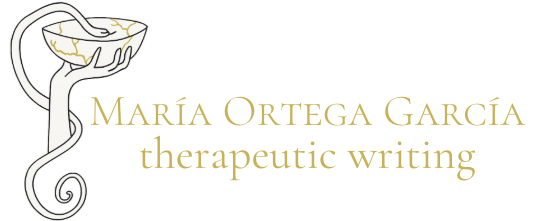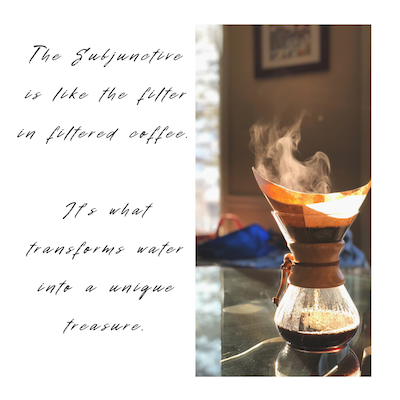
“I don’t remember the time when speaking didn’t make me anxious”, she mumbled, still trying to smile but unable to look me in the eye. “I feel you, sister”, I wanted to say, to help share her painful load and to show her that I’m proof of living with that anxiety, but now somewhat happily.
The very same week my client told me about her anxiety when having to speak, I was reminded that anxiety doesn’t really go away, no matter how many years of work you have under your belt. Speech anxiety is another companion in some people’s life journeys. I joined an online discussion group, and we were in the introductions part. I could feel the tension in my stomach and my heartbeat speeding up. The impulse of “preparing what I wanted to say” instead of listening to the other participants was so loud! But I knew better, and after a moment of mild panic, I said to myself: “Be present. Be in the group. Listen to everyone as you’d like them to listen to you and trust yourself to be able to say what you need to say when your turn comes”. And, of course, I was still tense while listening to each introduction, the fear didn’t go away, but at least I was present and trusting. And when my turn came, I introduced myself: “My name is María, and I am nervous, like every single time that I have to speak in a group”.
The dissipating and connecting power of vulnerability
Smiles and nods of understanding ensued. After me, every participant said the same: they were nervous.
More often than not, what you experience is experienced by someone else in the group. Had I chosen not to voice my inner state of nervousness, nobody would have known that about me (we can be “great pretenders”). Or they would have thought I was just a stiff human being (because tension, fear, and nerves manifest themselves in aloofness sometimes). In any case, I would have left them the job to figure me out, which often leads to misguided interpretations.
In this article, I am talking about anxiety, the type of anxiety that prevents you from speaking in a group or expressing yourself in Spanish. The kind of anxiety that frustrates you, makes you sad or unsatisfied.
But before I go on with ways to manage this kind of anxiety, it’s essential to acknowledge that you don’t have to speak. You can be in a group and not talk. We don’t always have to have an opinion or something to say. And being silent in a group, listening, is more valuable than occupying air space for the sake of it, to have our voice heard or presence acknowledged even if we are not adding anything.
I say it one more time. You don’t have to speak, so the pressure is off.
What’s dramatic is when you do have something to say and don’t say it. In this case, you owe to speak. You owe your words to the group. The group will suffer irreparable loss if you had something to say but didn’t say it.
What are the reasons that prevent us from speaking when we have something to say? Many and varied, but all boil down to one: fear.
Fear of: “not being right”, “not being understood”, “making a mistake”, “being laughed at “, “ridicule”, and the list goes on.
Losing the opportunity to say what we want to say for these reasons feels icky. We feel frustrated, unseen, and a failure.
Types of Speaking Anxiety
Before we continue, I want to separate two types of speaking anxiety that sometimes overlap but not necessarily.
– Foreign Language Anxiety
– Social / Speech Anxiety
Both affect the ability to speak in similar ways. Still, foreign language anxiety refers only to fear of speaking a foreign language, whereas social anxiety refers to any situation where we have to talk.
Three ways to manage social anxiety, applicable to foreign language anxiety too
Basically, stop thinking about yourself. When you have to speak in a group, do a presentation o be in a situation that puts you at the centre of attention, your hands start to sweat and your heart race. This response is not rare or new. In prehistoric times, humans perceived eyes watching us as an existential threat because those eyes were likely predators. Those prehistoric humans were terrified of being eaten alive. In response to that reality, the amygdala, the part of our brain that helps us respond to danger, became activated. And our fight-or-flight-or-freeze-or-fawn response gets triggered, which in return, we feel intense stress and anxiety.
Now, fast forward to current times. What does this response have to do with public speaking? A lot. When we have to speak in public, all eyes are on us. Remember the predators in prehistoric times? We feel the same way.
What to do then?
▸ ▸ ▸ Shift the focus away from yourself. It turns out the key to calming the amygdala and deactivating our built-in panic button is to stop focusing on ourselves (on whether we will mess up or whether the audience will like us) and focus on helping the audience instead.
▸ ▸ ▸ Reframe your thinking about the situation. Change your negative thoughts and worst-case scenarios into something positive (i.e. learning or growth opportunity) or generous (i.e. “I’m not sharing this for me but the audience, listener).
▸ ▸ ▸ Visualise. This technique is my favourite because I get to “experience” both my most feared worst-case scenario and the best. Thinking about the worst that could happen helps me find solutions and ways to overcome that situation in advance, so I feel prepared, and my brain will also be prepared. Then I play out the best-case scenario. Why? Because it motivates me to keep working, training, improving… and because it’s a pleasure.
As Benjamin Disraeli said: “I am prepared for the worst, but hope for the best.”
A way to manage Foreign Language Anxiety
We’ve seen three ways to manage social / speech anxiety in general, but I’ve found that they apply to the more specific Foreign Language Anxiety. This anxiety is related to the act of speaking, listening and learning a foreign language. And it’s rooted in three elements:
– Fear of making a negative social impression
– Fear of failing a test
– Communication apprehension: This is connected with not accepting that, as beginners, we’ll have difficulty expressing our thoughts and ideas in the target language. And you know how when we don’t accept something, we create a block that prevents us from overcoming the very thing that we can’t tolerate.
So, the way to manage foreign language anxiety involves reframing (#2 in the previous section)
1. Reframe the speaker’s authority, making mistakes, having a strong accent…
When we speak with a native speaker of our target language, we often see that person as an authority in the language (as if they owned the language and therefore we’ll never be able to reach their level of mastery). There is no wonder that we feel intimidated! The truth is that nobody owns a language, not even native speakers. A language is a tool for communication and self-expression. This means that a native speaker will feel more comfortable using the language because they were born in it, and a non-native speaker will have an accent and occasionally make mistakes. That’s all. The less intimidating and more encouraging way to see this situation is that you are putting yourself out there, making an effort, being vulnerable, learning and expanding your abilities. Now, this trumps the occasional mistake and unique accent, don’t you think?
2. Slow down.
Both the conversation and, when possible, having conversations in a foreign language.
If speaking in a foreign language raises your stress level, don’t feel pressed to speak right away. Practise listening, reading and writing instead. And build your confidence at your rhythm.
When you are having a conversation with a native speaker, give yourself time to think and respond, and most importantly, give yourself time to breathe. Breathing deeply will soothe your nervous system, preventing you from experiencing tunnel vision and accelerated heart rate. Think about it: when we have tunnel vision, we don’t have access to the full extent of our knowledge in the language, so we don’t find the words, make mistakes, and make you even more anxious.







One thought on “How to reduce foreign language anxiety”